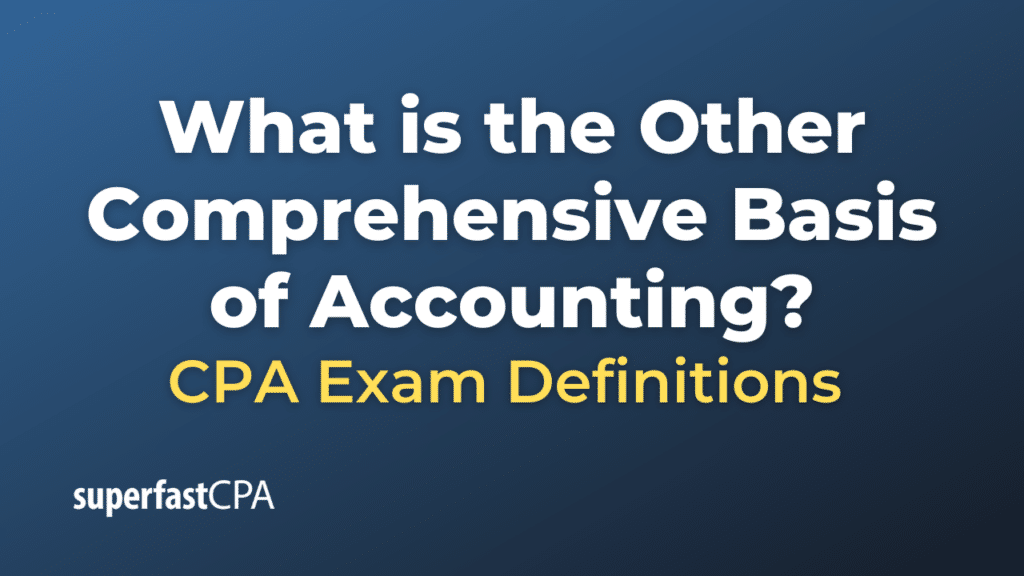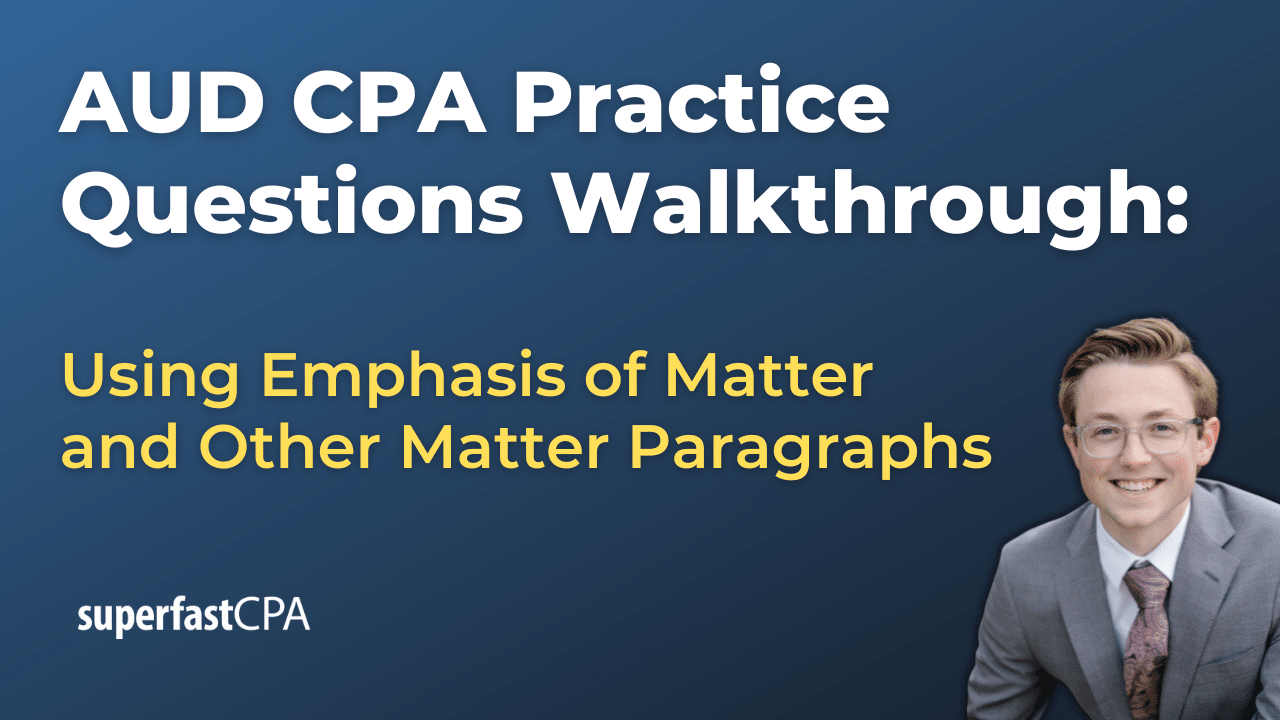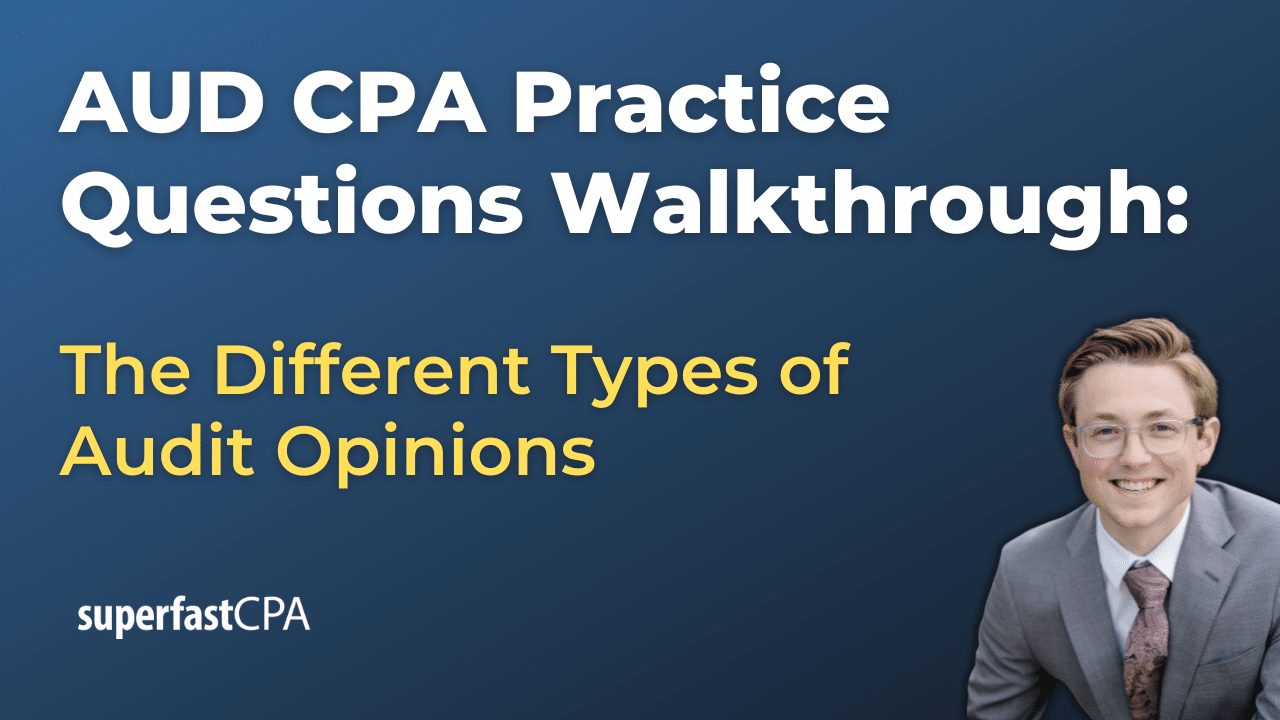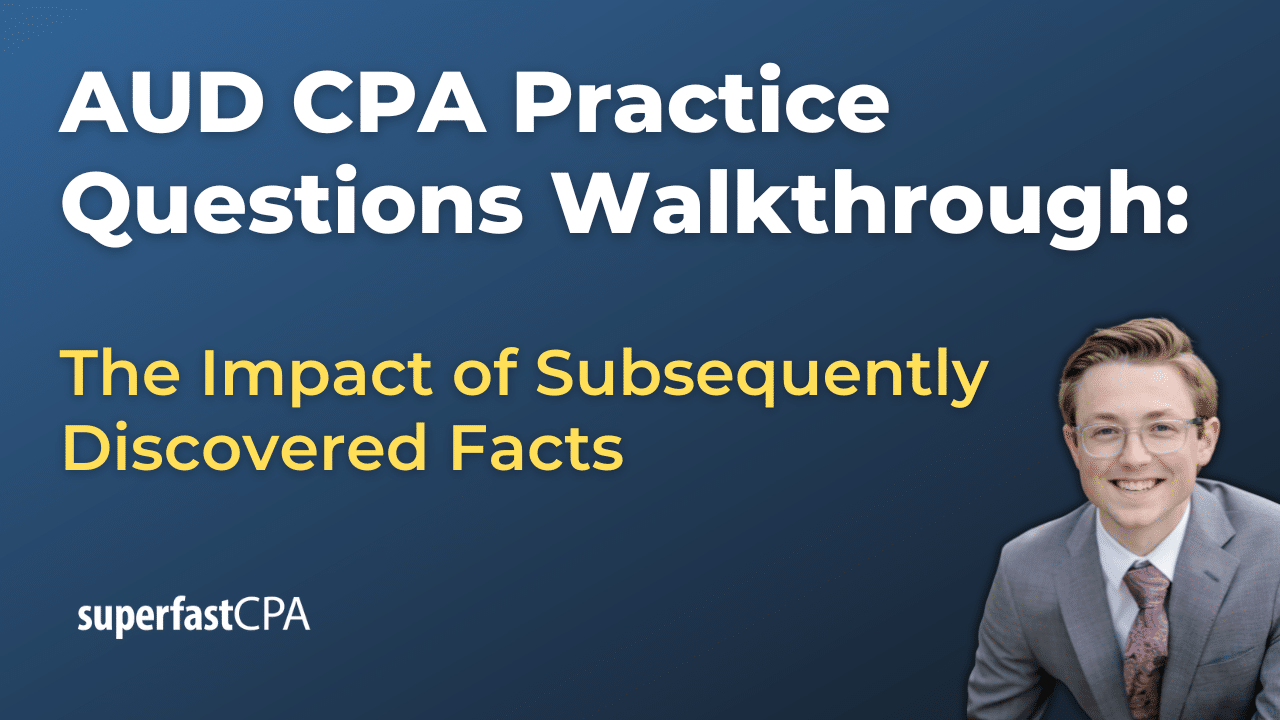Other Comprehensive Basis of Accounting
The Other Comprehensive Basis of Accounting (OCBOA) refers to a system of accounting that deviates from the traditional Generally Accepted Accounting Principles (GAAP) basis. OCBOA methods, while not following GAAP, still provide an informative and comprehensible financial reporting structure. These methods are generally simpler and less costly to apply.
There are three primary types of OCBOA:
- Cash Basis of Accounting: Recognizes revenues when cash is received and expenses when cash is paid, regardless of when the income is earned or the expense is incurred.
- Modified Cash Basis of Accounting: A combination of cash and accrual basis accounting. It recognizes revenues when cash is received (like cash basis), but records expenses when they are incurred (like accrual basis). It might also include certain modifications that provide for the recording of depreciation, accruals, etc.
- Income Tax Basis of Accounting: The accounting follows the same rules as used in the company’s income tax returns. This means recognizing revenue and expenses according to the tax laws, which often allows for faster depreciation and delaying the recognition of income.
While OCBOA financial statements can be less complex to prepare and easier for some users to understand, they may not fully reflect a company’s financial position and operations as comprehensively as GAAP-based financial statements. Also, OCBOA is not accepted by all regulatory bodies or lenders, which may require GAAP-based financial statements.
Example of the Other Comprehensive Basis of Accounting
Let’s consider a simple example of two companies to understand how the Other Comprehensive Basis of Accounting (OCBOA) works.
Company A uses the accrual basis of accounting, following Generally Accepted Accounting Principles (GAAP). They performed services for a client in December 2023 and sent an invoice for $10,000, but they haven’t received payment as of December 31, 2023. Under the accrual basis, Company A would record this $10,000 as revenue in their 2023 financial statements because it’s earned and billed, even though it hasn’t been received yet.
Company B, on the other hand, uses an OCBOA method – the cash basis of accounting. They also performed services for a client in December 2023 and sent an invoice for $10,000, but they haven’t received payment as of December 31, 2023. Under the cash basis, Company B would not record this $10,000 as revenue in their 2023 financial statements. It would only be recorded once the cash is received.
These examples show how the choice of accounting method can significantly affect when revenue is recognized in a company’s financial statements. If you were only looking at the income statement for 2023, you might think that Company A earned more revenue than Company B, but in reality, they both billed the same amount to clients. The difference is purely due to the accounting methods used.














